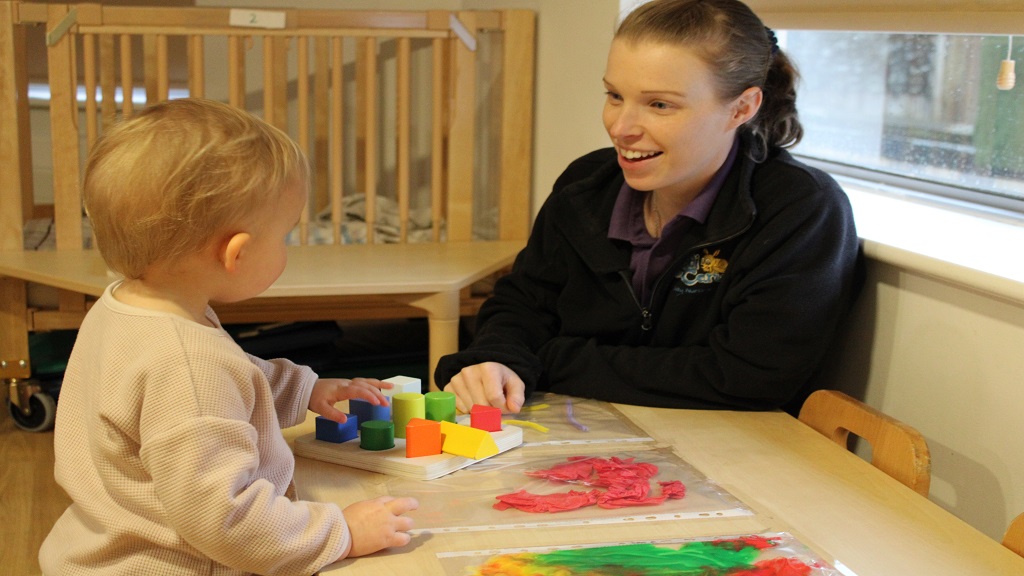UK training provider for the early years sector, Realise has expressed “fundamental concerns” at plans for a new experience-based progression…
Ofsted Annual Report: challenges continue for recruitment
Ofsted annual report analysed several areas of the sector that highlighted the recruitment and early years care challenges
Recruitment woes continue to push a significant number of early years providers to the edge as they grapple to balance increasing operating costs and insufficient funding.
Providers are having to rely more on agency staff and apprenticeships to maintain the required staff–child ratios. If they cannot get those additional members of staff, provision is being scaled down contributing to a further squeeze on childcare places available.
According to the Ofsted annual report, one of the most pressing issues is the growing number of unqualified staff working in nurseries and pre-schools. In 2023, one in five staff is unqualified compared with one in seven staff in 2018.
This report is also Amanda Spielman’s seventh and last as Ofsted chief inspector. She will be stepping down at the end of the year.
The report stated:
“Current realities in education and social care include stubborn gaps in children’s learning, recruitment and retention issues, and increasing demands for additional services that are already overstretched. High demand for special educational needs and/or disabilities (SEND) and mental health services is particularly straining limited resources.”
Ofsted annual report: key findings
- Last year Ofsted carried out 12,300 full early years inspections .
- Of those inspections, 85% resulted in a judgement of good or outstanding for overall effectiveness.
- Of the inspections carried out this year, 40% previously judged outstanding and 79% previously judged good kept the same grade. However, 8% that were previously judged outstanding dropped to requires improvement or inadequate
- Childminders were found more likely to achieve a good or outstanding than nurseries and pre-schools
- 2,610 registration visits were carried out this year. These were to childminder, nursery and pre-school
- applicants
- Since the introduction of the education inspection framework in 2019, the proportion of early years providers judged outstanding has decreased from 20% to 14%. In the same period, the proportion of providers judged good has increased from 76% to 83%.
Commenting, Neil Leitch, chief executive of the Early Years Alliance, said:
“Ofsted is absolutely right to highlight the effect of ongoing recruitment and retention challenges on the early years, and the long-term detrimental impact that these are likely to have on quality.
“For years now, settings have had to survive on wholly inadequate funding rates, resulting in consistently low rates of pay throughout the sector. Is it any wonder, then, that we are seeing so many talented professionals leave the early years – and that it is such a struggle to recruit new qualified with the right qualifications and skillsets?
“The early years is the single most critical period of a child’s learning and development and yet, as this report points out, more and more settings are being forced to rely on temporary agency staff just to remain open, result in a poorer consistency – and in some cases – quality of care and education for children.
“Add to this the fact that we are losing childminding professionals in their droves, and it’s clear that the sector is reaching breaking point.
“If we are to ensure that all children get the best possible start in life, then it’s vital that government makes tackling the early years staffing crisis an urgent priority. The current situation simply isn’t sustainable.”
Purnima Tanuku OBE, chief executive of National Day Nurseries Association (NDNA) said:
“In our Blueprint we called for early years to be termed ‘early education and care’ to reflect the importance of a child’s first five years on their lifelong learning and development. It’s good that Ofsted has acknowledged the value of what children learn in this crucial stage of life which shapes their future educational attainment and lifelong chances. Early years education is the best investment that government can make for the positive future of the country.
“However, many children are disadvantaged currently though chronic underfunding. Our members continue to tell us that more children are presenting with more complex needs. Early years is the most crucial time to get that support right for children, but often they suffer delays in accessing support services. While training is key, this needs to go hand in hand with sufficient funding along with more expert resources on the ground.
“We are hugely concerned about the fall in qualifications for early years staff presented in this report. Settings need to be able to attract and retain staff, but cannot do this unless the funding shortfall is addressed. The state of recruitment, retention for the sector continues to undermine efforts to deliver the promised expansion in funded places. Exacerbating this situation, inspectors must ensure they take the workforce pressures into consideration when inspecting nurseries.
“With 83% of nurseries expecting to make a loss or only break even this year, nursery closures are up 50% on the previous year. We fear that without proper investment, more children – particularly those with SEND and additional needs – will miss out on the high quality early education and care they desperately need.”
Latest News
Settling in a little one can be a stressful experience. Grandir UK outline ways to reduce the stress and support…
Specialist business property advisor, Christie & Co, has announced the sale of a Little People Nurseries setting in Heckmondwike, West…




